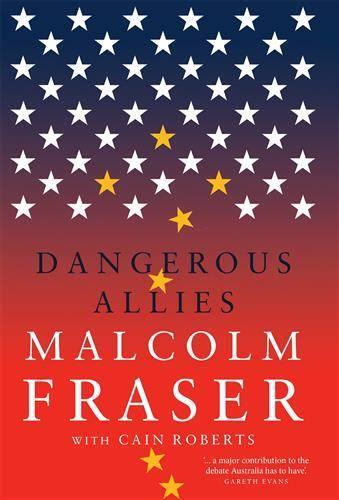
Dangerous Allies
(Hardback)
Available Formats
Publishing Details
Dangerous Allies
By (Author) Malcolm Fraser
By (author) Cain Roberts
Melbourne University Press
Melbourne University Press
1st May 2014
Australia
Classifications
General
Non Fiction
327.94
Physical Properties
Hardback
372
Width 160mm, Height 243mm, Spine 26mm
717g
Description
Australia has always been reliant on great and powerful friends for its sense of national security and for direction on its foreign policy-first on the British Empire and now on the United States. Australia has actively pursued a policy of strategic dependence, believing that making a grand bargain with a powerful ally was the best policy to ensure its security and prosperity. Dangerous Allies examines Australia s history of strategic dependence and questions the continuation of this position. It argues that international circumstances, in the world and in the Western Pacific especially, now make such a policy highly questionable. Since the fall of the Soviet Union, the United States has also changed dramatically, making it less relevant to Australia and a less appropriate ally on which Australia should rely. Malcolm Fraser argues that Australia should adopt a much greater degree of independence in foreign policy, and that we should no longer merely follow other nations into wars of no direct interest to Australia or Australia s security. He argues for an end to strategic dependence and for the timely establishment of a truly independent Australia.
Author Bio
Malcolm Fraser served as Australia s 22nd Prime Minister from 1975 until he resigned from federal politics in 1983 after 28 years as the Federal Member for Wannon. He held several ministries during his time in Parliament, including Minister for the Army, Minister of State for Defence and Minister for Education and Science. Since leaving government Mr Fraser has played a distinguished role in international relations. He was Co-chairman of the Commonwealth Committee of Eminent Persons in 1986, formed to encourage reform in South Africa. He served as Chairman of CARE Australia from 1987 until 2001, and President of CARE International from 1990 to 1995. He was a foundation Board Member of the International Crisis Group from 1996 to 2000 and has served as a Senior Advisor there since. In 2011 he became a member of the Asia Pacific Leadership Network for Nuclear Non-Proliferation and Disarmament. Mr Fraser has been appointed a Companion of the Order of Australia and received the President s Gold Medal for Humanitarian Service from B nai B rith International, as well as the Australian Human Rights Medal from the Human Rights and Equal Opportunity Commission. In March 2010
